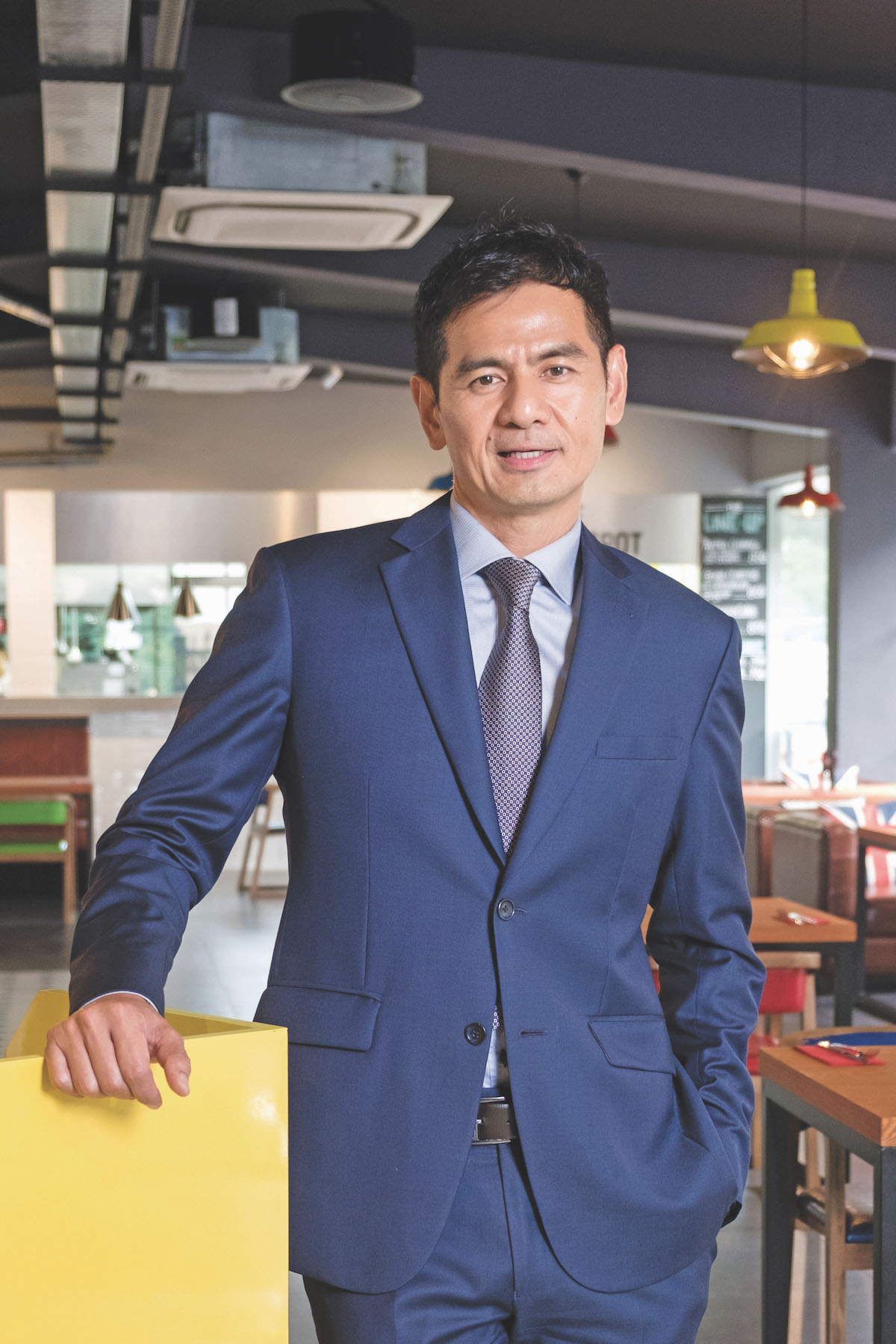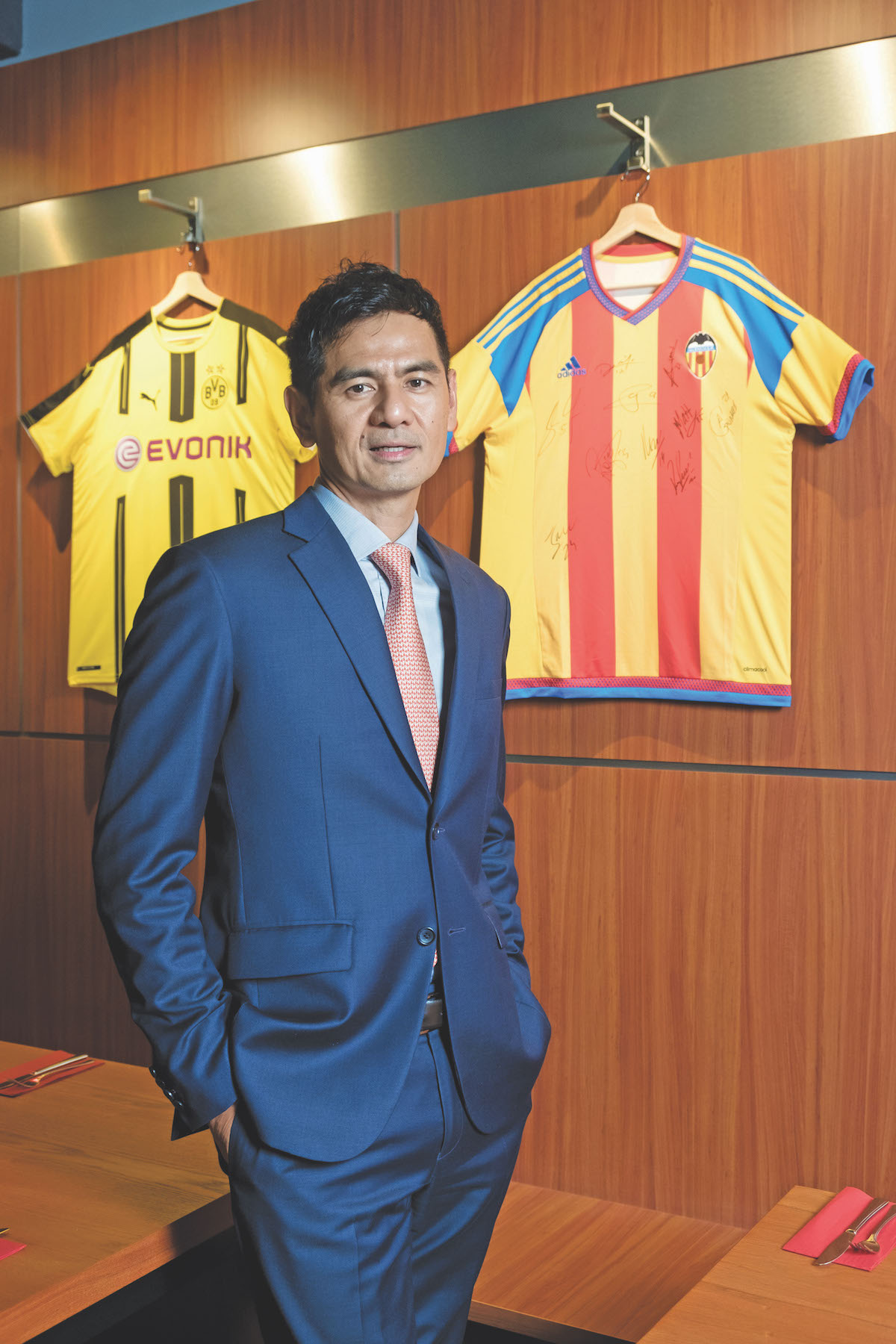Establishing a career in real estate was not necessarily a direct path for Ho Kiam Kheong, Rowsley’s executive director and managing director, real estate. But Kiam Kheong now has 25 years’ experience in the real estate industry, spending the first part of his career designing and constructing buildings.
“Initially, it was essentially about putting bricks and mortar together, but somewhere along the way I became involved with investment analysis and business development,” he says. Today, Kiam Kheong has been managing real estate businesses in many different countries such as India, United Arab Emirates and the UK.
The best real estate in Manchester
Before joining Rowsley, Kiam Kheong held senior positions in real estate companies, including chief development officer of Reem Investments PJSC, and senior vice president (new markets) at CapitaLand Residential and CapitaLand Commercial.
At Reem, he led the development of 2 projects totalling approximately 200 hectares in Abu Dhabi, while at CapitaLand he managed the group’s expansion into frontier markets such as Russia, Kazakhstan, India, Vietnam and Malaysia. But it was the UK that he returned to time and again throughout his working life.

“I have always been somehow connected with the UK at various stages in my life,” he explains. “For instance, I did my postgraduate program, a Master of Engineering, at the University of Liverpool. I was also involved in the acquisition of a process engineering company based in Manchester, which I subsequently managed for a period of my life between 2003 and 2006.
“While in the UAE, I did the Manchester United Soccer School in Abu Dhabi, so that took me back to Manchester quite often; and, of course, now with Rowsley, we own some of the best real estate properties in Manchester.”
First foray into hospitality
Certainly, Kiam Kheong is passionate about the businesses at Rowsley. The real estate company has businesses in design and engineering, development and hospitality. Kiam Kheong was appointed executive director in September 2013, and redesignated executive director and managing director, real estate, with effect from January 2016.
In late 2015, Rowsley made its first foray into the hospitality sector, taking a stake in Hotel Football, a 4-star 134-room hotel located opposite Manchester United’s Old Trafford Stadium, which was developed in partnership with former Manchester United football legends Gary Neville and Ryan Giggs and other members of the Class of ’92. It also contains a second Cafe Football, the first Cafe Football having opened in London in 2013. The brand has since ventured outside of the UK, with the opening of Cafe Football Singapore.
“As a leader, I give a fair bit of room to my people to manage their work because I believe that, with freedom, people are more creative.”
At the same time as taking the stake in Hotel Football, Rowsley continued to make other acquisitions, including investing into the Stock Exchange Hotel in Manchester and signing a joint-venture agreement for St Michael’s, a mixed development which comprises a hotel, an office tower, and 159 residential apartments right in the heart of the city centre of Manchester. It is also plotting a course to secure more hospitality management contracts worldwide, particularly in Asia and Europe, via GG Collections and Ariva. “We have just acquired a hospitality management company called Ariva to extend our hospitality footprint in Asia,” says Kiam Kheong.
Ariva has more than 6,500 room keys under management and in the pipeline, spread across 47 properties in Asia–Pacific. It manages hotels and serviced apartments under its own and associate companies’ brands, as well as third-party brands.
A foothold on football
Last year, Rowsley further extended its reach into the football community, announcing a partnership with the UK’s National Football Museum, which holds 140,000 pieces of football memorabilia, including collections from FIFA, the Football League and The Football Association. The extensive collection includes the 1996 World Cup ball, the ‘Sleeping Beckham’ work of art by Sam Taylor-Wood, and Maradona’s 1986 ‘Hand of God’ match shirt.
The museum also holds the rights to some interactive virtual reality programs that are primarily related to football. Under the newly forged partnership, items of memorabilia will be lent to Rowsley for display in its football hotels and cafés. “So our customers who come to our venues, be it in China, India or South East Asia, will have the chance to be able to see them.”

Rowsley will also operate a new Cafe Football at the Manchester-based museum, which is visited by half a million people annually and is among Manchester’s top tourist attractions. Cafe Football will exclusively handle all catering at the museum. These are the kinds of developments that make Rowsley’s approach fairly unconventional.
Kiam Kheong acknowledges that “understanding how a building is designed, and how it can be constructed in the quickest or the most cost-effective way, definitely helps. And it also requires an ability to deal with a lot of people, whether they are the authorities, consultants, contractors or buyers. It is, to a large extent, about managing people.
“But perhaps the most important aspect to real estate is in conceptualising the right development ideas. Fundamentally, it requires a good understanding of how the industry behaves in different countries and different cities, and they are all unique in their own ways.”
Beyond bricks and mortar
As he further explains, Rowsley is always aiming to go beyond simply putting together bricks and mortar. “Rowsley is a real estate company with a world-class capability in architecture and engineering. What is different is our team of professional architects and engineers simply don’t get bogged down by convention.
We do not just build residential buildings for sale, or office buildings for lease, or hotels for people to sleep in. We like to create moments of experiences for our customers, and often we do that with partners who are strong in particular areas of expertise, so that together we can deliver those moments.” In the case of Hotel Football, the brand has become synonymous with being “inviting, surprising and playful,” Kiam Kheong says, similar to the feeling of playing football.
“At Hotel Football, you will be served by very friendly, sincere staff; you get to enjoy great food and beverages; you may get to see footballers as customers having fun; you see a lot of corporates entertaining guests; and you get to play football with your friends on the rooftop if you wish. We see families returning again and again. It’s home to a lot of people.
“All these things were possible because we had partners who shared the same vision; we knew exactly what we were doing, and together we made it happen.”
Best in class partners
As the company forges into the future, it is exploring other potential partnerships to bring its approach into another new area: real estate with a healthcare focus. “We have announced our intention to grow Hotel Football into Europe and Asia,” says Kiam Kheong. “This will be an exciting initiative that will probably define the Rowsley growth in the hospitality sector.
We are also working closely with our partners such as Thomson Medical and TMC Life Sciences in the healthcare sector. As a real estate group, we are shaping up nicely for the healthcare, hospitality and sports industries to deliver exciting experiences for customers through unique projects in various countries.”
He recognises that its partners are important stakeholders in any project that they build together. “I have always believed that no matter how good we are or how hard we work, we will always be limited by how much we can do, especially in industries that are not really our forte.
This is where we work closely with our partners like Thomson Medical, TMC Life Sciences, the boys from Manchester United’s Class of ’92, and our consultants and contractors, who are all best in their respective classes.“Of course, we have to keep working at it because we can only be as successful as our partners. We must choose our partners wisely and then support them vigorously.”
Adapt & achieve
Asked what he considers to be the important qualities in a leader, he points to the value of his overseas work experiences in developing some of the flexibility required to succeed
in leadership.
“I am a trained civil engineer, so you would probably imagine that I am someone who sees things in black or white, right or wrong. But the truth is, through my experiences living and working overseas, I have learned that there are really no norms. We just have to learn to adapt, within our values, to achieve the results we want.
So as a leader now, I give a fair bit of room to my people to manage their work because I believe that, with freedom, people are more creative. Only then can you see that in the work they produce. “Of course, I still expect them to always be vigilant and alert, always staying ahead of the curve to make sure they are not taken by surprises and left without a solution to their problems.”
Kiam Kheong admits that the level of vigilance is hard work, but it’s an effort that he believes will pay off. “I believe we can make a success of anything through hard work, and I expect that from my people.”



